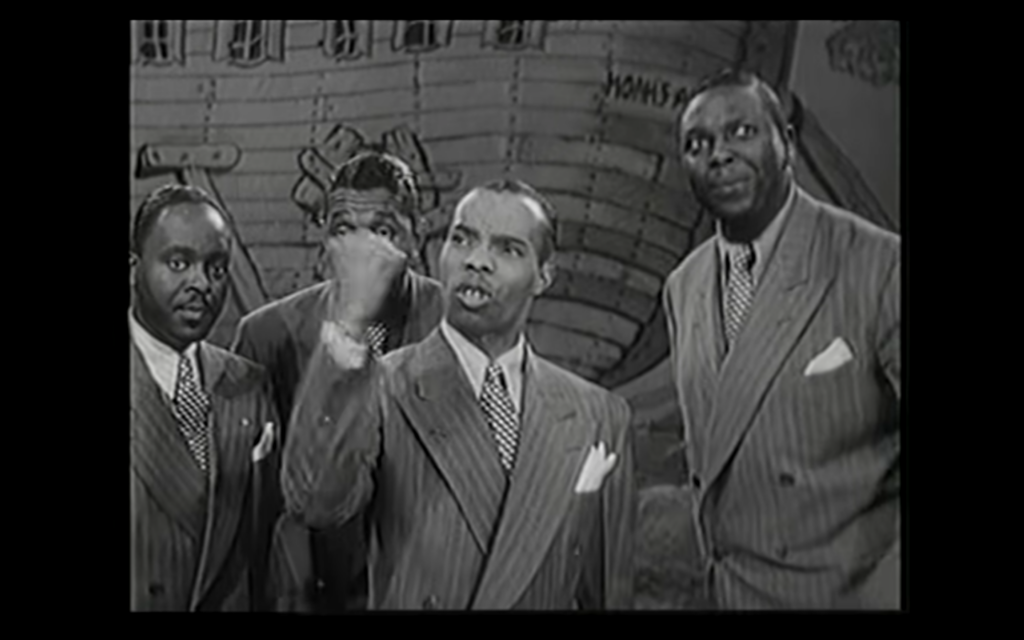I always thought of Gil Scot-Heron as the godfather of rap. But Ted Brooks and the Jubalaires antedated him by a couple of decades.
The Jubalaires formed as the Royal Harmony Singers in the late 1930s. Coming out of the Southern gospel tradition of Jubilee-style quartets, the Jubalaires went north to New York City. By 1946, they were regulars on the popular Arthur Godfrey radio program, and they had their own fifteen-minute program every Sunday morning as well. They were accompanied by a series of excellent jazz guitarists, but their music was mostly focused on tight vocal harmonies. As a gospel group, the topic of many of their songs was Bible stories or other religious topics.
So where does the rap come in? Well, one of their best known recordings is a song called “Noah.” After singing an introductory part in four-part harmony, baritone Theodore “Ted” Brooks takes the lead. But Brooks doesn’t sing, he raps. It wasn’t called rap back then, but today there’s no other word for it. His rhythm, his rhymes, the whole feel of it sounds a lot like some of the early rap I listened to back around 1980. I could almost imagine that Grandmaster Flash and the Furious Five had listened to Ted Brooks, except that the members of that group were born in the late 1950s and early 1960s, well after the hey-day of the Jubalaires. And of course, Grandmaster Flash and the Furious Five did not take Bible stories for their topics. But if they had — if they had done something about the story of Noah, for example — we could imagine that it might have sounded something like Ted Brooks in the mid-1940s:
“Hey children, stop, be still and listen to me,
When God walked down to the brandy sea
He declared that the evil descend from man,
And then he decided to destroy the land.
He spoke to Noah, and Noah stopped.
He said, ‘Noah, I want you to build me an ark,
‘I want you to build it three cubits long,
‘I want you to build it big and strong,
‘I want it thirty high and fifty wide
‘So it will stand the wind and tide.’…”

Hard to believe that the first rapper was making rhymes about Bible stories. Now I’ve got to figure out a way to use this in a Sunday school curriculum….
More Jubalaires with rapped verses: God’s Gonna Cut You Down (not sure who takes the lead on this recording; this was later covered by Johnny Cash); The Preacher and the Bear (is that Caleb Ginyard taking the lead? I’m not sure).
